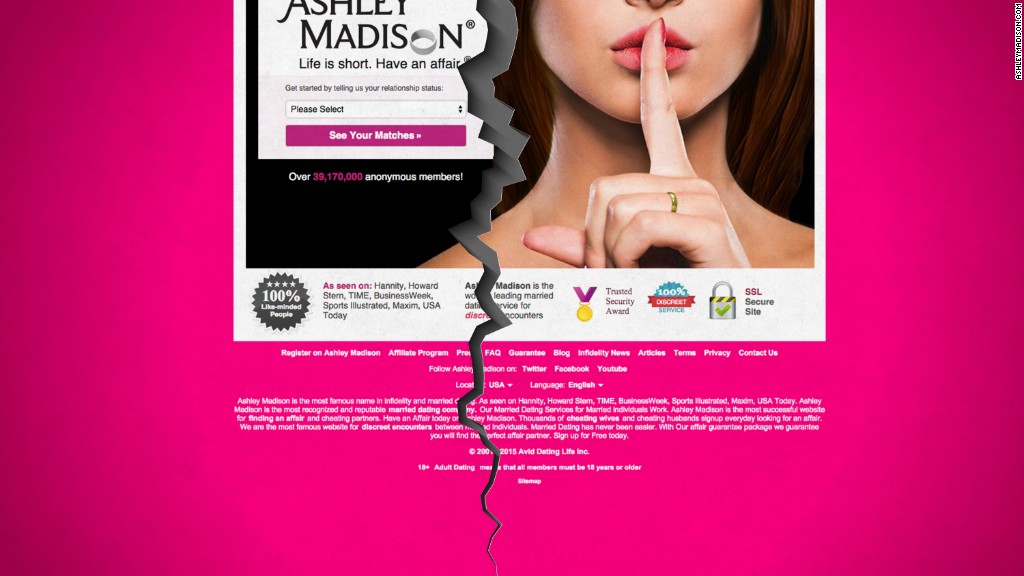
Ashley Madison customers will have to reveal their identities if they want to sue the infidelity dating website.
A federal judge ruled that 42 plaintiffs seeking to represent a class of Ashley Madison customers will have to make their names known should they choose to proceed with their lawsuit.
They're suing Ashley Madison for lacking the proper safeguards to protect them from a massive hack that revealed the personal information of more than 32 million customers. Ashley Madison had advertised that its systems were secure and its customers would remain anonymous.
Ashley Madison also had offered a "full delete" service that would permanently remove their names from the database if they paid the company to do so. But those names remained on the company's servers and were revealed by the hackers.
The plaintiffs are currently listed as "John Does," because the judge had temporarily allowed them to file the lawsuit anonymously. Lawyers for the plaintiffs filed a motion in February to make the anonymity permanent, arguing that there is a legal precedent for remaining anonymous while suing a company.
The customers suing Ashley Madison hoped to stay anonymous "to reduce the risk of potentially catastrophic personal and professional consequences that could befall them and their families," according to the motion.
But U.S. District Court judge John Ross denied the plaintiffs' motion in a ruling earlier this month.
Related: Ashley Madison says it added 4 million customers since the hack
Judge Ross noted that rape and sexual abuse victims, as well as cases involving hot-button topics such as abortion, AIDS and LGBT issues have all allowed victims to use pseudonyms. He acknowledged that revealing the Ashley Madison customers' names would be potentially harmful, rising "above the level of mere embarrassment or harm to reputation." They could lose the ability to find a job, for example, or their unwitting spouses could leave them.
But Ashley Madison customers chose to sign up for the cheaters' dating service. They may be victims of a hack, but they willingly signed up.
Ashley Madison's parent company Avid Life Media argued that the plaintiffs' sexual preferences and habits "do not constitute information of the utmost intimacy so as to require anonymity." The company also cited several cases in which judges required unsavory facts about a plaintiff to be revealed, ruling that potential embarrassment or economic harm didn't outweigh public interest.
Since court cases establish legal precedent, there is a public interest in plaintiffs using their real names.
The judge said the 42 Ashley Madison customers should be identified because they are representatives of a potentially much larger class.
They can still be part of the class if they want to sue anonymously, though the reward they'll get if they win will be less.
Judge Ross said he would potentially revisit his decision if all or virtually all of the 42 plaintiffs drop out.
There are several other class action suits currently working their way through the U.S. court system. In one such case, the plaintiffs chose to use their real names.

